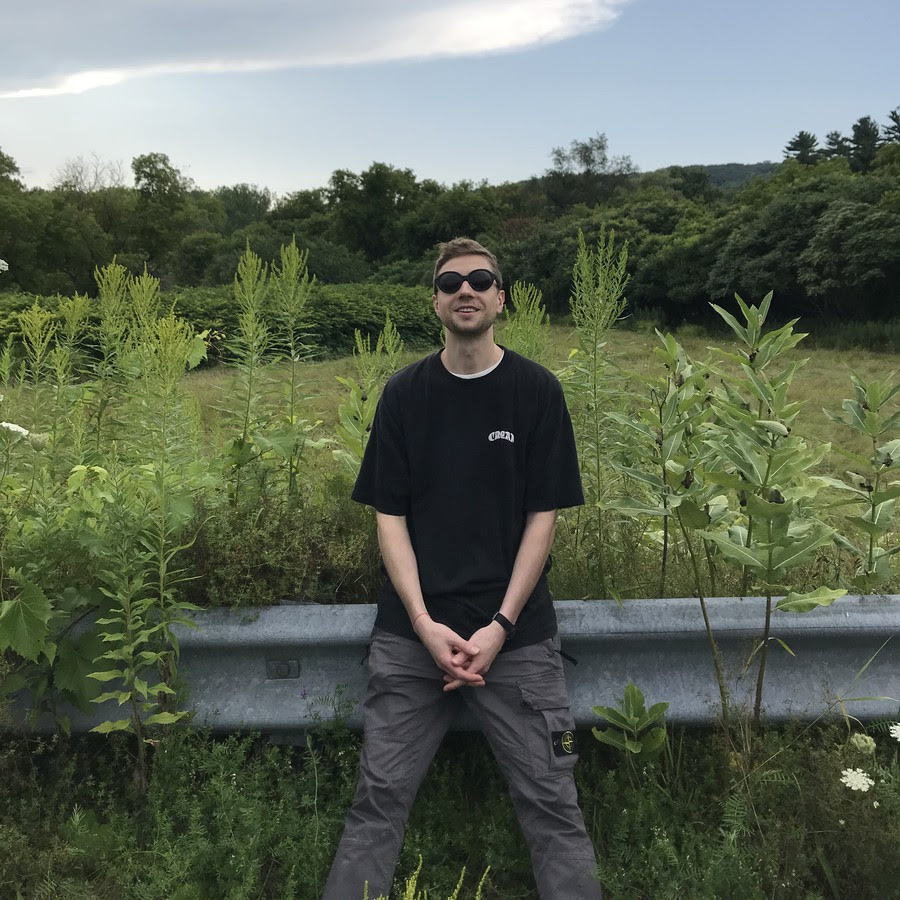Jacob Moore
01.07.2020
Jacob Moore is the founder and editor-in-chief of the worshiped and culture-shaping music discovery platform Pigeons and Planes. Jacob has witnessed countless artists' exponential rises to popularity since the site was founded in 2008.

P&P has become a right of passage for cutting edge artists - as you continue to carefully curate the selections alongside a trusted team, what are some moments that you are most proud of?
I think I used to take more pride in moments like covering Smino before anyone knew who he was, or doing Lorde's first US interview, or getting shouted out on Chance The Rapper's Acid Rap after supporting him early on, or getting one of Young Thug or Clairo's first interviews, or throwing 6LACK's first headlining show in NYC.
The longer I do this and the more I see, the more I realize that's not something to take credit for. Pigeons & Planes is constantly highlighting great talent that we believe in and giving them a platform, but what they go on to become is up to them and their teams. I hope that the exposure we give can help artists connect with the right people and take the next steps, but I'm just as proud of all the artists we cover who don't go on to be superstars. There are a million variables we can't control in an artist's career trajectory, so I'm happy any time we cover someone who's making great music. What happens next is out of our hands, and I've seen a lot of great artists who never blow up. I'm still glad we covered them.
The thing that I'm most proud of is that we continue to highlight new talent. I take pride in the fact that I still listen to submissions every day, and that Pigeons & Planes is still covering artists that nobody else is. We are still taking risks, getting excited about new things, and sharing good music. As so many other blogs and media outlets have come and gone, I think P&P has held onto its reputation as a trustworthy source for quality music discovery.
You’ve previously mentioned the importance of artists working on their craft before they're catapulted to stardom - “They're just all of a sudden stars and there's no real system for how to deal with that and how to address it—how to nurture these artists." What steps do you think could be taken within the industry to address this?
One side of this is artist development, and I don't know if there's a way to change that. Everything is based on data now, and data isn't going anywhere. Labels are mostly chasing the same artists off the same data, and when it's about social media growth and streaming momentum, the idea is to dump fuel on the fire and keep that momentum going. That pure idea of going off gut feeling and signing artists solely based on good music is really nice, but at the end of the day, it's seen as bad business to most labels. Why are you going to invest a bunch of resources into something with no proof of concept when we have access to all this data? So they're signing things that are already working in one way or another.
I don't know... it's not like labels were any purer in the past, they just didn't have any other options. They didn't have the data, so the only choice was to find something based on speculation, then put in the work to grow it and nurture it. All of this said, there are definitely some labels, people, and other music companies operating differently, and I think some of them will see a lot of long-term success, and maybe that will be a good case study for other ways of being successful in music.
The other side of what I was talking about with that quote you included was more about mental health, the speed at which things happen, and the nature of being a young celebrity in 2020. We've seen too many artists get money, fame, and success really fast and find themselves in a situation that's impossible to cope with. That's also a product of the times—things happen fast now, and everything is public. I don't expect labels to sign young artists and give them years to grow and mature before dealing with fame, but I do think there could be more effort to prepare young artists for everything that comes with a successful music career in modern times. It's not an easy answer where it's like "do these 5 things and you'll be ok," but I think there could be a more hands-on approach to nurturing young artists in the years, months, weeks before the pressure is really on.
I think a big part of it is on management too. If artists are only surrounded by people who care about the money, they're going to have a hard time unless they've got their act together. And so many artists have other struggles that often come with being a creative person. Overall, I'm hopeful. I think we're a long way from where we need to be, but at least the conversations are happening. It's tragic that we had to lose so many young artists to make this more of a focus.
With COVID forcing the industry to adapt and with there being a clear shift towards streaming and digital, do you think there’s room for media and press to recapture the traction they had in the early 2010s?
I never really thought about it like that. I think there's definitely an opening for media companies to get creative, but I think a lot of artists are becoming even more self-sufficient. Artists are going live on IG, setting up their own virtual shows and merch operations, getting more active in connecting directly with their fans, and realizing that they don't need media to tell their story; they can do it themselves. But as more and more of them do it, spaces are getting really crowded. Whenever I log onto Instagram now, I'm seeing so many people going live or pushing at-home performances—it was kind of exciting at first, but I think people are getting tired of it. So yeah, I think this is a chance for media outlets to step up, come up with some creative solutions, and bring value to the table for artists. I don't know if blogs are going to make a comeback, but I think we'll see another shift, even if it is a more social media-focused media resurgence.
Lastly - you’ve seen artists go from 100 SoundCloud streams to playing arenas. While no two pathways are similar when it comes to scaling an artist’s profile, have you noticed any consistent variables or patterns when it comes to nurturing early buzz into tangible momentum?
I've already mentioned this, but I think the team around the artist is such a huge factor, and it's not something that the public ever really gets to see. There are cases where an artist is just so good or so driven or has such a magnetic charisma that they blow up despite not having a strong team, but it's rare. On the other hand, it's really common that an artist with massive potential never breaks because they don't have a solid team around them.
The other pattern I think about a lot is around timing. There are exceptions to this too, but so many of the artists who blow up overnight disappear just as quickly. The ones who last are usually the ones who have a longer build-up and slower growth, who have put in the work for years. When those acts get their big break, they're prepared for it, and they've got the tools and requirements like a core audience who's invested and a deeper understanding of who they are and what they're trying to accomplish.
There are some important steps to establishing a sustainable career, and I don't think you can skip those steps. Building a foundation is so crucial, and artists who haven't done that usually don't stick around, even if they get one or two massive hits. I see a lot of artists aiming for that kind of viral success, especially now that TikTok is so popular, but think about how many viral stars actually matter 5 or 10 years later. It's hard to tell artists to take their time, because not all aspiring artists have the luxury of time, but I would say that it's so important to really nurture your small audience before you focus too much on getting a huge one.
Having 100 fans who really care is so much more important than having 1,000 fans who heard a song on a playlist and don't care. Those 100 fans are the ones who will buy your merch, go to your shows, support everything you do. Artists who develop those hardcore cult followings early on almost always have a sustainable career.
